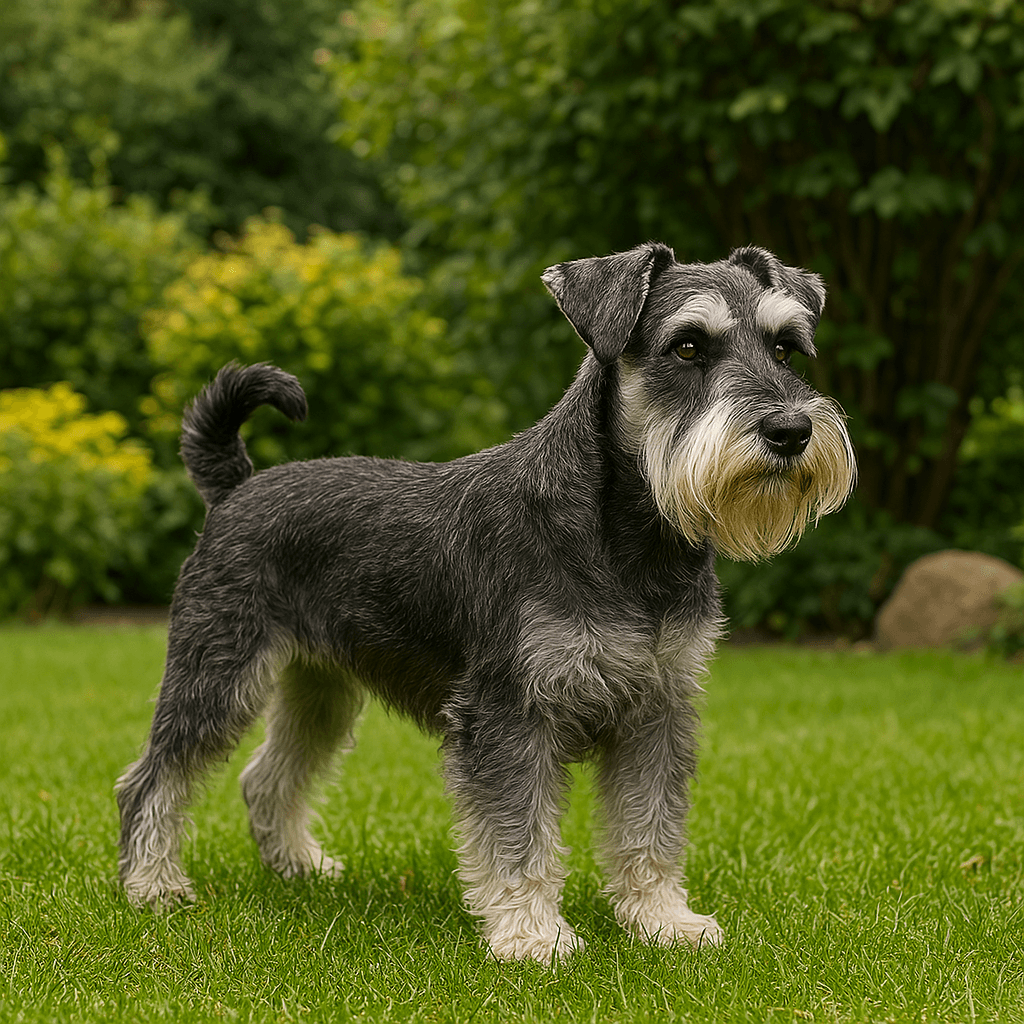
West Highland White Terrier – everything you need to know about this cheerful breed
The West Highland White Terrier , also known as the Westie , is a small, snow-white dog with a huge heart, a lively disposition, and exceptional charm. It's one of the most popular small dog breeds—perfect for both homes with a garden and apartments. This post is a comprehensive guide to the breed , created with Westie owners and enthusiasts in mind.
Contents
-
Origin and history of the breed
-
Appearance and characteristics
-
Character and temperament
-
Westie Nutrition
-
Care and health
-
Training and activity
-
Recommended products for Westies from Petto.com.pl
-
FAQ – frequently asked questions
-
Summary
1. Origin and history of the breed
The breed originates from Scotland , and its history dates back to the 19th century. The Westie was bred as a hunting dog, specializing in hunting small game—primarily foxes, badgers, and rodents. Its white color was the result of selective breeding—intended to make it easier to distinguish the dog from its prey during the hunt. Today, the Westie is primarily a loyal family companion , but its independence and vigilance remain unchanged.
2. Appearance and characteristics
-
Height : 25–30 cm
-
Weight : 6–10 kg
-
Figure : stocky, strong, proportionate
-
Coat : double – rough outer coat and soft undercoat
-
Color : always pure white
-
Eyes : dark, shiny, very expressive
-
Ears : small, erect, triangular
The Westie always has a cheerful expression that perfectly reflects its playful nature. It's small but very sturdy – built like a true terrier: ready for action and independent.
3. Character and temperament
This is a dog that can win anyone's heart – energetic, curious, sociable, and friendly. The Westie thrives on people, loves to play, and is very devoted to its owner. At the same time, it retains the typical terrier traits of self-confidence, courage, and independence .
Advantages of Westies :
-
Joyful, full of life
-
Gets along well with children and other animals
-
Loyal and attached to his family
-
Intelligent – learns quickly
Challenges :
-
He can be stubborn
-
He can be barking.
-
It has a strong hunting instinct - it requires proper upbringing
4. Feeding Westies
Proper nutrition for this breed is key to healthy skin and a beautiful coat , as well as avoiding the weight gain that Westies are prone to. It's worth choosing:
-
Grain-free or hypoallergenic foods
-
Formulas supporting skin condition (with salmon oil, zinc, biotin)
-
Food with moderate fat content
-
Avoid chicken - Westies may have allergies
5. Care and health
Even though the Westie has white fur, it doesn't shed much, but its coat does require regular grooming. Key steps:
-
Trimming : every 2–3 months
-
Combing : at least twice a week
-
Washing paws and beards after walks
-
Ear and dental hygiene
Common health problems:
-
Skin allergies
-
Problems with the sebaceous glands (so-called Westie skin syndrome)
-
Dental diseases
-
Chronic ear infections
Regular visits to the vet and preventative care are essential in caring for this breed.
6. Training and activity
The Westie is an intelligent and intelligent dog, but, as befits a terrier, it can be independent . Training should be conducted gently but consistently, preferably using positive reinforcement.
Westies need daily exercise , although not at the level of sporting dogs. Ideal activities:
-
Walks (2–3 per day)
-
Outdoor fun
-
Smell games, e.g. smell mats
-
Simple tricks and commands
7. Recommended products for Westies from Petto.com.pl
🛏️ Beds and sleeping areas
Westies love comfort and their own space.
➡️ See the lairs
🚗 Car seats
Perfect for safe travel – especially for a breed that likes to be close to its owner.
➡️ Dog seats
🐾 Dog steps
Especially recommended for older Westies or those with joint problems.
➡️ Petto Steps
8. Frequently Asked Questions (FAQ)
Is a Westie a good dog for beginners?
Yes, provided that they are consistently raised and given activities.
Can a Westie live in an apartment building?
Definitely yes – he tolerates apartment life well as long as he has access to walks and play.
How long does a Westie live?
The average lifespan is 12–15 years.
Is the Westie hypoallergenic?
The breed is considered relatively allergy-friendly, but allergies vary from person to person.
9. Summary
The West Highland White Terrier is a charming, compact dog with a big personality. It makes an excellent family dog or companion for singles or seniors. Thanks to its intelligence and loyalty, the Westie can form a deep bond with its owner, but it also needs challenges, human contact, and stimulation.
If you dream of a dog that will be your daily companion and doesn't require much physical exertion, a Westie is the perfect choice. Just remember to use the right products and grooming – you'll find them all at petto.com.pl .




 https://petto.com.pl
https://petto.com.pl